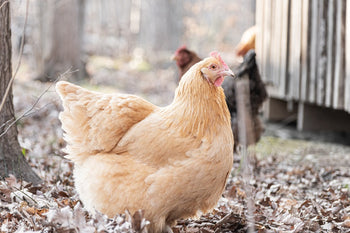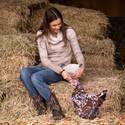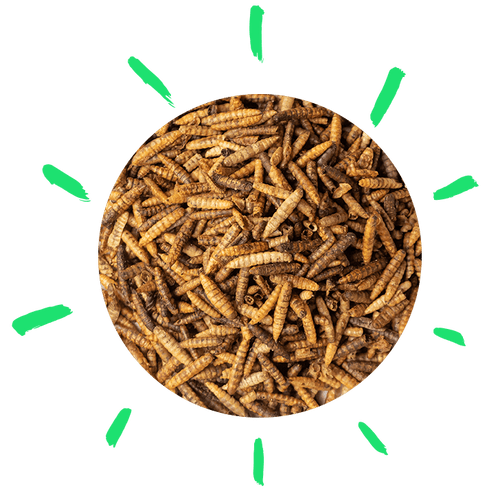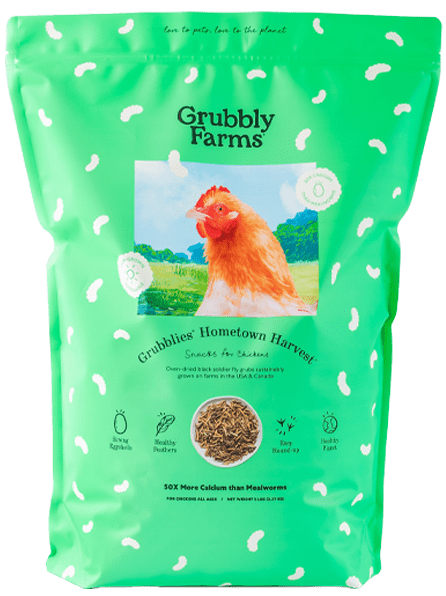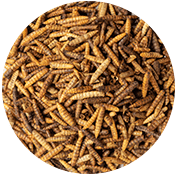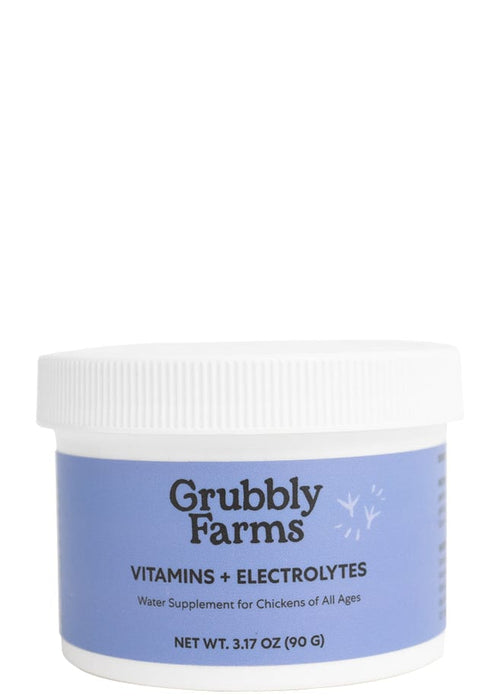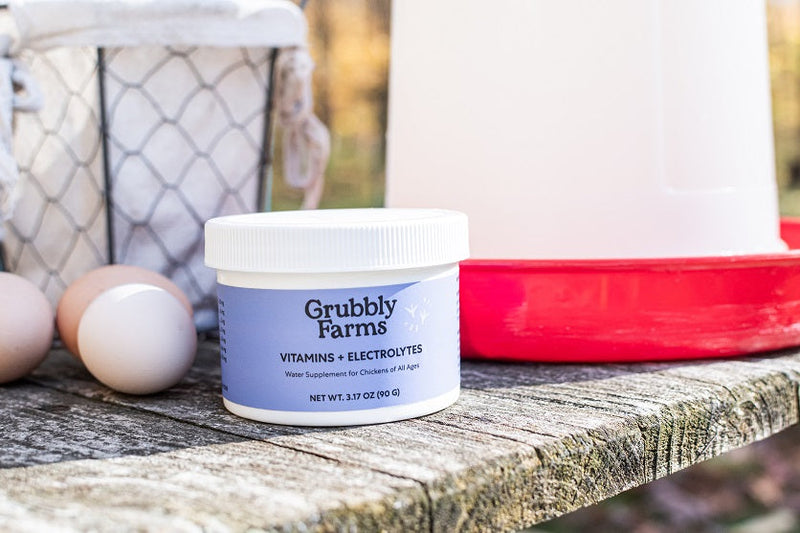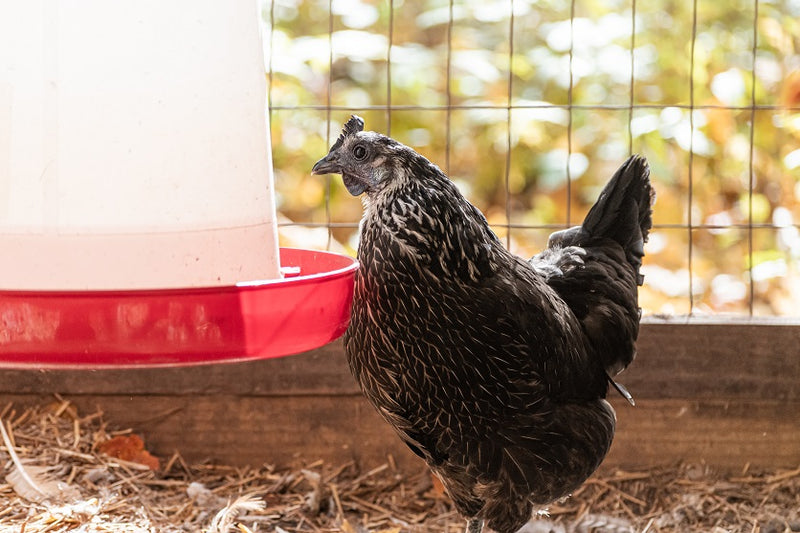Infectious coryza is essentially like a chicken’s version of the common cold. It is a common respiratory ailment caused by bacteria that invade a chicken’s respiratory tract. Infectious coryza is often hard to distinguish from other respiratory ailments, but knowing what specific symptoms to watch for can help you identify this infection in your flock. Knowing how to recognize, treat, and prevent infectious coryza in your backyard flock is important for keeping them healthy!
What is Infectious Coryza in Chickens?
Infectious coryza is one of the most common bacterial diseases in backyard chickens. It is caused by the bacteria Haemophilus paragallinarum or Avibacterium paragallinarian. These bacteria are most prevalent in warm environments. Infectious coryza can also be called hemophilus infection, infectious catarrh, or roup.
Infectious coryza is very much like a common cold for chickens. It is a respiratory disease that causes chickens to exhibit respiratory distress and is spread through respiratory droplets. Respiratory droplets from an infected bird coughing or sneezing can be inhaled by other birds, which then spreads the infection.
In most cases infectious coryza is not fatal. Survivors of the infection will build up immunity to the bacteria, but they do remain carriers of the disease for the rest of their life. Noninfected chickens who are exposed to infected chickens are also considered carriers of the disease even if they never exhibit any symptoms. That is because chickens can build up immunity to the infection without showing any symptoms of being infected. Despite having immunity, they can still spread the disease to other chickens who don’t have immunity to infectious coryza.
Since carrier chickens are asymptomatic of the coryza infection, they are sometimes brought to poultry sales, swaps, or poultry shows. Chickens who have not been exposed to infectious coryza are then at risk. Infectious coryza can only be transferred through carrier chickens, it is not transmitted through hatching eggs.
Symptoms of Infectious Coryza in Chickens
Chickens tend not to be susceptible to infectious coryza until they are at least 3-4 months of age. As they age, they become more prone to the infection. Here are some common symptoms of an infectious coryza infection (2):
- nasal discharge
- watery & sticky eyes
- facial swelling (eyes, sinuses)
- difficulty breathing (labored, noisy, sneezing)
- drop in food & water intake
In cocks, their wattles may become swollen during an infection (1). In hens, you may see a decline in egg laying or an infected hen may stop laying altogether. Infected birds may also have diarrhea.
Diagnosing Infectious Coryza
Infectious coryza can be hard to diagnose since it resembles so many other poultry respiratory ailments. The infection can also occur as a secondary infection to another disease or may even occur in conjunction with another respiratory ailment. The best way to distinguish infectious coryza from other respiratory ailments is to watch for putrid smelling nasal discharge. Many other respiratory ailments may cause nasal discharge, but they often lack the putrid smell associated with infectious coryza (2).
Infectious coryza can also be acute or chronic. Acute infectious coryza spreads very rapidly and will run its course through a flock in about 3 weeks. Chronic infectious coryza spreads much slower and will usually remain in a flock for closer to 3 months (2).
You can diagnose both acute and chronic coryza through clinical observations and laboratory tests. Watch for the common symptoms of infectious coryza in your flock. You may notice only one bird exhibiting symptoms if the infection is chronic or several birds may exhibit symptoms if the infection is acute. Not all the chickens in your flock may exhibit symptoms if they are able to build up immunity to the bacteria.
You should also consult a veterinarian or avian expert for accurate diagnosis. Laboratory identification of the bacteria can help confirm an outbreak of infectious coryza in a flock. Laboratory testing can also help distinguish the coryza bacteria from other pathogens that cause similar respiratory ailments such as chronic respiratory disease, nutritional roup, fowl cholera, laryngotracheitis, Newcastle disease, bronchitis, and avian influenza.
Treatment Options for Infectious Coryza
Infectious coryza has a mortality rate of 20-50%. Acute coryza tends to be more fatal since it spreads faster and gives chickens less time to build immunity for fighting the infection.
Chickens who contract infectious coryza can often recover on their own if they are provided with the proper supportive care. Any birds who you suspect have infectious coryza should be quarantined away from the rest of your flock. This can help reduce exposure of the bacteria to the healthy birds in the flock and allow them to build up immunity to the infection gradually.
Once quarantined, the infected chicken will be easier to care for and treat. Make sure the quarantined chicken is safe and protected and has access to food and water. You can also supply supplemental probiotics during this time to help improve gut health. A healthy gut will help the chicken fight the bacterial infection faster. Natural antimicrobials can also be offered to fend off the pathogenic bacteria causing the infection.
Antibiotics can be used on hens who are not laying, but antibiotics will only help relieve the symptoms, they will not treat the infection (1). The infection must be fought naturally by the chicken’s body. Most antibiotics cannot be used on laying hens since they require a withdrawal period and are not approved for use on animals who provide food. In any case, whether the chicken was treated with antibiotics or not, it will remain a carrier of the disease for life.
Since infectious coryza will run its course naturally, early intervention and veterinary consultation are effective ways of controlling the infection. By catching the infection early on or before it spreads to many chickens in your flock, you will be able to prevent the infection from becoming severe or fatal. Infectious coryza becomes fatal when it interferes with a chicken's ability to breath, eat, or drink. If an infection gets severe, breathing may become very difficult for the chicken and its face may be swollen to prevent eating and drinking.
When proper preventative care is given to the infected chicken, the swelling should abate in 10-14 days (1), but other symptoms may persist for months, especially if a secondary infection sets in. A chicken who has recovered from infectious coryza is prone to get the infection again if its immune system becomes weakened.
Preventive Measures
Infectious coryza is a hard infection to control once a flock member contracts the bacteria. Even if only one chicken in your flock exhibits symptoms of the infection, you must assume that all the chickens in your flock are now carriers of the disease. By quarantining the infected chicken quickly, you can possibly prevent the other chickens in your flock from developing symptoms of the infection. However, the only way to completely get rid of the infection once it has been diagnosed is to cull the entire flock, disinfect the premises, and allow the housing to remain vacant for at least 3 weeks (2).
The infectious coryza bacteria cannot survive for very long outside of a chicken’s body, so proper disinfecting and vacancy periods can prevent the infection from reoccurring in a new flock. If the infection occurs in a breeding flock, you can still preserve the bloodline by saving some hatching eggs to start a new flock. Infectious coryza cannot be passed through hatching eggs so you can start a fresh, noninfected flock effectively as long as the housing and premises have been properly disinfected.
The best way to control infectious coryza in your flock is to implement preventative measures. If you can help your flock build up strong immune systems, they will be able to fight the infection more effectively if they are exposed to the infectious bacteria.
Since infectious coryza is mostly spread through exposure from infected birds, the best preventative method is controlling the amount of contact your flock has with other chickens from outside sources. Avoid adding new, mature chickens to your flock from outside sources. Even birds from poultry shows can be carriers of the infection without showing symptoms. If you take your chickens on and off your property frequently, such as for poultry shows, quarantine the birds who are returning to watch for symptoms of infection. Disinfect waters and feeders regularly and don’t borrow equipment from other poultry keepers. Respiratory discharge from infected birds can cause equipment like feeders and waters to become tools of exposure to a healthy flock.
There is a vaccine option for infectious coryza, however, it is only affective for preventing future outbreaks of coryza after the infection has already been diagnosed in the flock (1). Once vaccinated, all the chickens in the flock must be revaccinated twice a year continually for the vaccination to be affective.
Conclusion
Infectious coryza is a common poultry ailment that can affect backyard chickens. It is the chicken’s equivalent to the common cold and it can become severe if left uncontrolled. Thankfully, chickens can recover on their own from infectious coryza if they are given proper supportive care. Despite being a common infection, you can prevent infectious coryza from becoming a problem in your flock by keeping a closed flock as much as possible and practicing good sanitary procedures. A balanced diet, proper care, and good biosecurity can keep your backyard flock safe and healthy!
- Damerow, Gail. The Chicken Health Handbook: A Complete Guide to Maximizing Flock Health & Dealing with Disease. Storey Publishing, 2015





